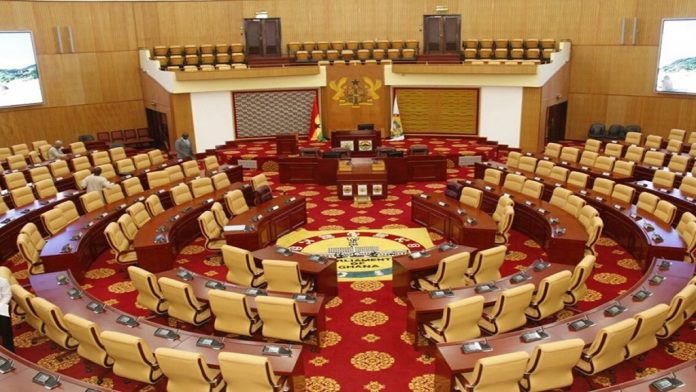GHANA- Saturday, July 18, 2020,/ https://africanpostonline.com/ The Majority Leader, Osei-Kyei-Mensah-Bonsu on Thursday, July 16, 2020, moved a motion for Parliament to adopt a proposal for the enactment of a Private Members’ Bill to make up for the lapses and gaps in the constitution.
A Private Member’s Bill is a bill or proposed law introduced into the legislature by a lawmaker who is not acting on behalf of the Executive arm of government hence, adopting a Private Members’ Bill in a parliamentary system of governance would be a milestone in the history of Ghana’s Democracy.
Since Ghana adopted the democratic system of governance, Bills have originally been initiated by the Executive arm of government, thus a Private Members’ Bill would mean a total alteration of the old system which states that, the initiation and subsequent introduction of legislation in Parliament was the preserve of the Executive.
Once enacted, the Private Members’ Bill will cover an unlimited number of issues and provide the platform for individuals and civil society organizations to assist the legislature in promulgating laws which would need the backing of all before it’s passage as well as a strong consensus within Parliament and co-operation between the Executive and Legislature.
The Majority Leader in moving the motion argued that Article 93(3) of the 1992 constitution vests legislative power in Parliament and Article 103(3) specifically stipulates that Parliament can use its Committees to generate proposals for Bills adding that, the combined effect of these two Articles means that Members of the house could initiate the passage of laws by submitting proposals or Bills.
Honourable Osei-Kyei-Mensah-Bonsu further explained that although Article 108 made it clear that no Bill introduced in Parliament should be at any cost to the government, it does not impose any omnibus on the initiation of legislation by a Private Member and that Members are entitled to introduce any legislation which does not have the specific financial implications spelt out in the Article.
He stressed that the legislative function of Parliament is one of the most significant roles of the house therefore, Members of the House should endeavour to be present at all times to assist in the procedures for law-making as the laws enacted by Parliament affect every Ghanaian.
Again, the Majority Leader noted that social and progressive legislation demands the co-operative effort of society as a whole to serve as a reforming complement to the efforts of the Executive and that of Parliament’s Legal and Research Departments to assist in re-enacting outdated laws in the statute books in order to cater for society’s legal needs.
Seconding the motion, Minority Leader and Member of Parliament for Tamale South, Honourable Haruna Iddrisu, described the proposal as significant and further noted that the introduction of the Private Members’ Bill in the current Parliament would mark a defining moment in the annals of Ghana’s democratic history and add to the country’s democratic credentials.
The Honourable Minority Leader recalled that the Rt. Honourable Speaker at his swearing-in stressed the need to resolve the controversy over MP’s initiating a Private Members’ Bill and that if no Member other than a Minister could initiate legislation, it means that Parliament has virtually given up a substantial part of its legislative power to the Executive, therefore, adopting the motion will resolve that controversy.
Honourable Iddrisu commended the speaker for his courageous effort to see to the realisation of the Bill as well as his enormous contribution to enriching the country’s democratic credentials.
Professor Mike Oquaye, the Speaker of Parliament acknowledged that Article 108 has an impact on the country’s law-making procedure, thus the Ghanaian people are accustomed to laws enacted from proposals or Bills from the Executive arm of government which is essentially how the government proposes to carry out socio-economic policies that would eventually be accounted for.
He also explained to the House that the constitution does not prohibit the introduction of Private Members’ Bill and that the enactment of such bills is critical in enhancing democratic governance.
The Rt. Honourable Speaker further indicated that other countries including, South Africa, Kenya, Australia, Canada, India, Norway, Burundi, Uganda and Tanzania have Private Members’ Bill as an alternative to fill in the lapses in their national laws adding that the British Parliament has equally been considering this alternative since 1983 and over 227 Private Members’ Bills have received Royal Assent.
He thanked the House for the motion and consequently referred it to the Leadership of the Standing Orders Committee and the Constitutional, Legal and Parliamentary Affairs Committee for the determination of suitable procedures for of its enactment in relation to the Public Financial Management Act 2016, Act 921 and report to the plenary in ten days.
Source: Deborah Narkoah -African Post Online
Read Also:
- Senegalese President declares today a public holiday to celebrate AFCON win
- Fall in Love with Love at Banyan Tree Ilha Caldeira, Mozambique
- Ghana: The story of a coconut company that exports throughout the world
- Axim Government Hospital shuts two facilities to shoot Hollywood movie; residents cry foul
- Honoring Archbishop Desmond Tutu, An Advocate and Believer in Humanity

I’m Deborah Aba Narkoah. I’m an avid reader, writer and public speaker.















